Our wedding in Kerala was small by Indian standards. There were only 700 guests. We chose to have our wedding in Kerala because Sandeep’s family is from here and the region has gorgeous topography. It seemed to be a great location for a destination wedding. The destination (and hopefully draw of the Malarkar Luke family!) brought together people from Australia, New Zealand, The Americas, Europe, Africa and all over Asia. We were so wrapped up in planning and the wedding that Sandeep and I didn’t quite appreciate that our location of choice, Fort Cochin, had been drawing visitors from around the world for centuries.
On our way back from Kodaikanal, and seven years into our marriage, we returned to Fort Cochin to revisit some of our wedding sites. The trip gave us our first real orientation to the rich history of the area.
The original plan was to get married in intimate Church of St. Francis, likely the first church built by Europeans in India. Vasco da Gama was buried here in 1524, but the Portuguese reclaimed his body back to Lisbon later. The church still operates large man powered cloth fans suspended above the pews, a leftover luxury of the British.
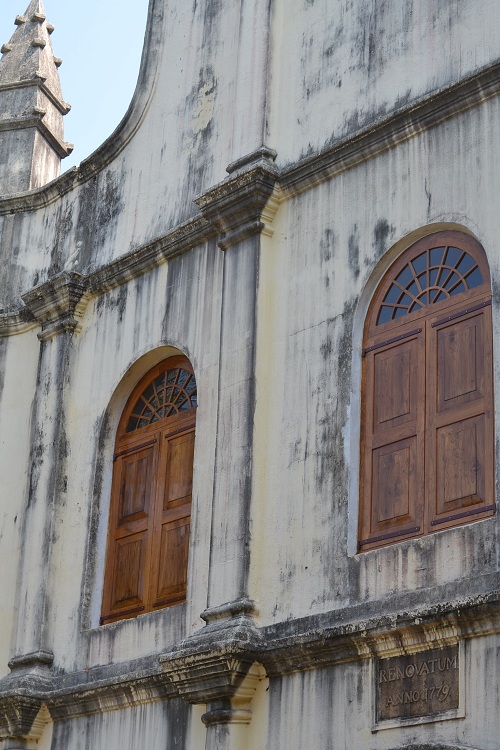
However, once the confirmed guest list crossed a hundred, we opted for the Santa Cruz Basilica, whose history dates back to the 1500s. The original Portuguese church was destroyed by the British and then rebuilt. The Basilica is now a tourist site, so in addition to our guests bulging at the walls, we had a healthy group of uninvited visitors taking pictures of the occasion. Ava doesn’t seem to comprehend a world that existed before she did, and she only half grasped the concept of us getting married at all.
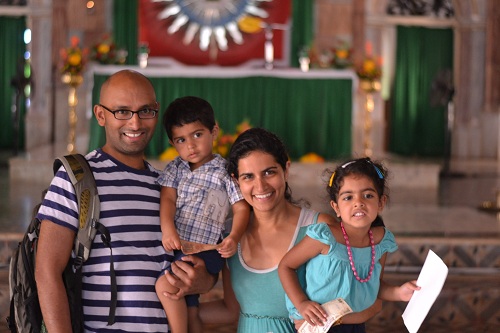
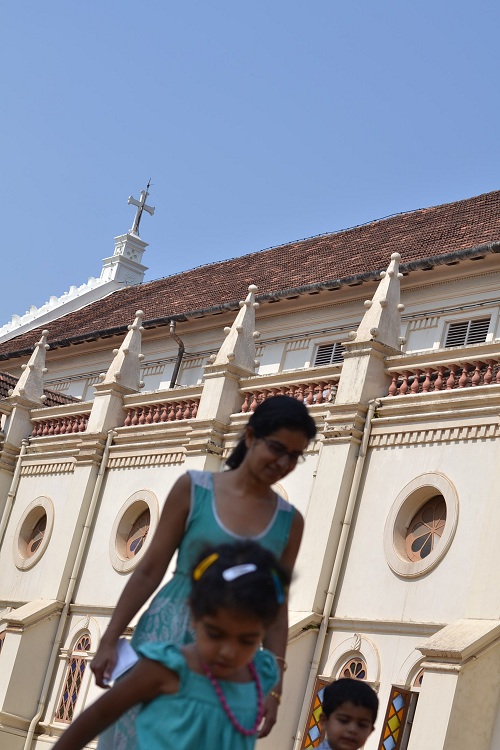
The backdrop to these churches are the swooping Chinese fishing nets lining the northern shore of Fort Cochin. The nets were introduced to the region by traders from the court of Kublai Khan. They still work on a manual system of stone weights that require multiple men to maneuver.
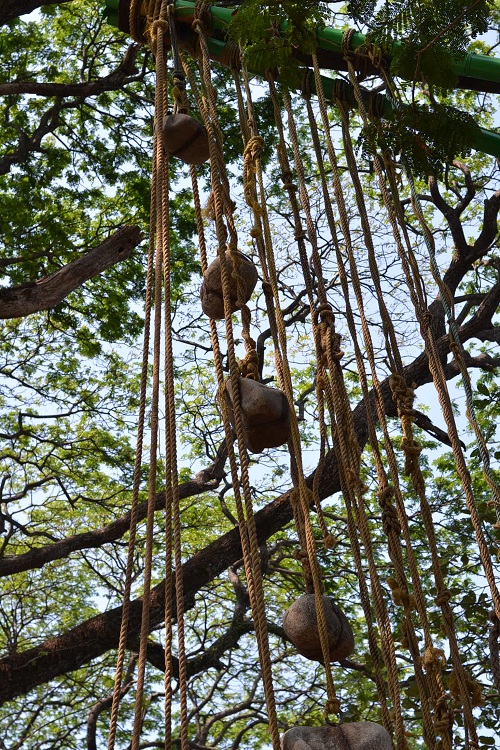
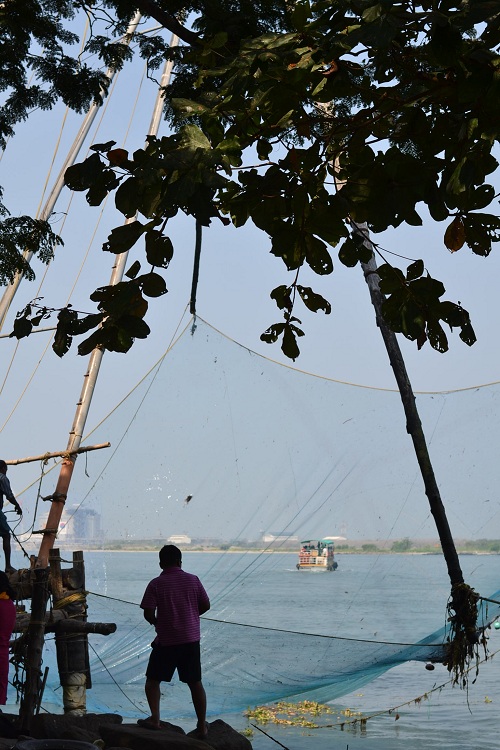
Evidence of Cochin’s trade with the Chinese can also be seen in the blue and white Canton tiles inside the Paradesi (White Jew) Synagogue. It was founded in 1568 and served the area’s once thriving Jewish community. There is evidence that a group of Judean traders settled in Cochin in 562 BC. In the sixteenth century, Sephardic Jews (known later in the area as Paradesi Jews) fled the Inquisition and added to the Jewish diversity of Cochin. Only a handful of Jews remain in Cochin today, although there are an estimated 8,000 Cochin Jews living in Israel.
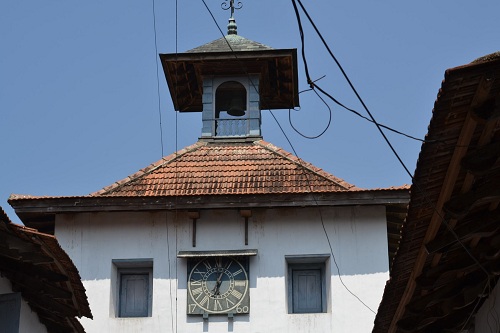
A random stroll through Fort Cochin leads through alleyways of Dutch, Portuguese, Arab, Indian and British architecture. The buildings are now home stays, cafes, and a mix of tourist stores and outfitters. Despite their new functions, many still retain their original facade and charm.
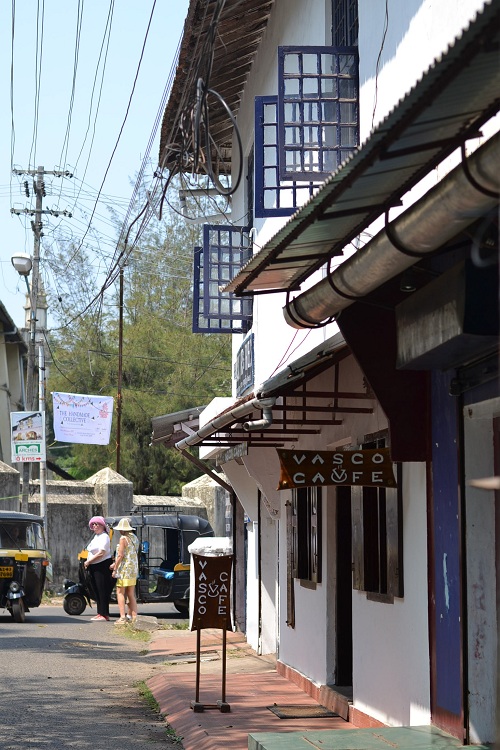
We were able to appreciate the historical diversity of Cochin by returning as tourists. In celebration of our wedding, we had a fresh seafood dinner (we hoped caught by the fishing nets) at Brunton Boatyard and watched the ferry boats busying themselves on the harbor.
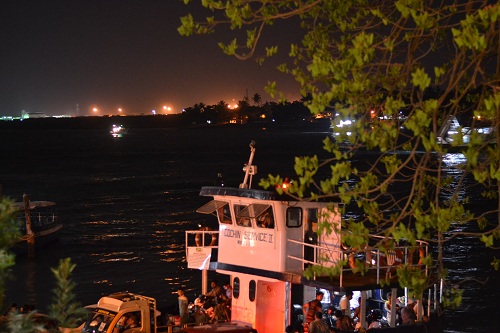
We were honored to have a global representation at our wedding. Now we understand that our host location has seen its own abundance of global guests for centuries.

So nice you were able to go back and enjoy it! It was a beautiful event. And I remember the church! I’m so happy to have been there to celebrate with you!
It was all of you that made the wedding so special! Ideally we would have gone back with everyone who came and relived the entire experience.
What a wonderful trip down memory lane! It truly seems like just a minute ago that you were planning your wedding …
Time flies. And it also seems like a minute ago we were planning for Ava and you handed me the pregnancy coat!
Very beautiful, and so rich in history. What does the word Cochin mean? I love the color of blue on the windows/shutters and doors. It looks like a blue and plum cross???
Thanks. The meaning of Cochin (Kochi) is debatable. May be co chin (like China) or from the word cochazhi, meaning small sea. Not sure.